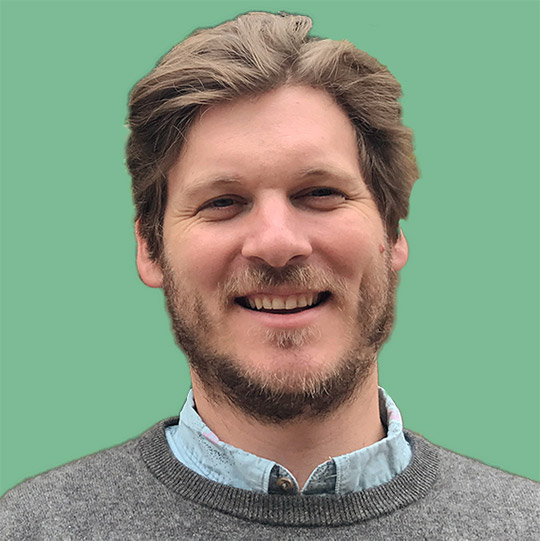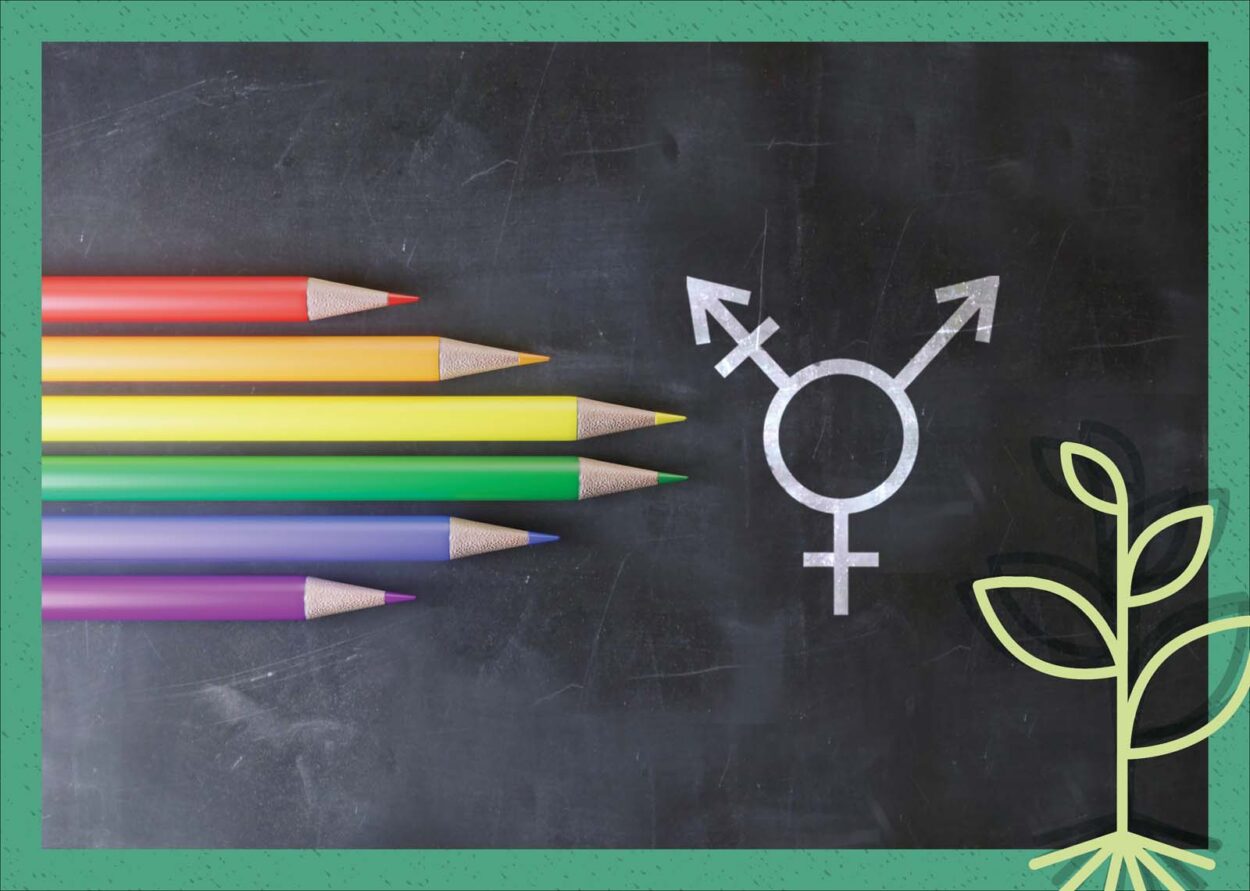We’re getting ready to launch Season Four of the Seed Field Podcast and we’re putting together two mini-episodes that revisit interviews from Season Three and pull out the themes that consistently run through them.
When discussing sexuality, sex therapy, and sex education there is the only thing we can count on- variation. When we allow individuals to know that variation is the only “normative” part of sexuality, then we get to live with less shame and more joy. In this bonus mini-episode, we revisit interviews with Dr. Markie LC Twist, Dr. Theodore Burns, and Fiona O’Farrel. Recapping these interviews, this is a conversation that emphasizes consent, destigmatizing sex therapy for adults, the harm of “abstinence-only education”, erotophobia in mental health treatment, and treating ourselves and others in our communities in a compassionate and socially just way.
Subscribe: Apple Podcasts | Spotify | Stitcher | Google | Simplecast
Episode Notes
The episodes mentioned in this recap are:
- Beyond ‘The Talk’—Supporting Young People As They Explore Sexuality and Gender with Dr. Markie L.C. Twist
- In Place of Fear and Shame, We Need Sex-Positive Education with Dr. Theodore Burnes
- The Tools of Sex Therapy Can Nurture Healthier Relationships with Fiona O’Farrell
This episode was recorded on August 18, 2022, via Riverside.FM and released August 30, 2022.
The Seed Field Podcast is produced by Antioch University.
The Seed Field Podcast’s host is Jasper Nighthawk, and its editor is Lauren Instenes. Special thanks for this episode goes to Sierra Nicole Debinion, Karen Hamilton, and Melinda Garland for their contributions.
To access a full transcript and find more information about this and other episodes, visit theseedfield.org. To get updates and be notified about future episodes, follow Antioch University on Facebook.
Host Bio

Jasper Nighthawk ’19 (Antioch Los Angeles, MFA) is Antioch’s Storyteller / Writer. You can find his features and profiles on Common Thread and in the Antioch Alumni Magazine. Find his fiction, poetry, and essays at jaspernighthawk.com. He lives in Los Angeles and on the Mendocino Coast with his partner and their cat.
S3 Bonus Episode 1 Transcript
[00:00:05] Jasper Nighthawk: Welcome to the Seed Field Podcast, a show where Antiochians share their knowledge, tell their stories, and come together to win victories for humanity.
[music]
I’m your host, Jasper Nighthawk. We’re getting ready to launch our fourth season of this podcast, and we think it’s going to be our best season yet. First, we want to share two bonus mini-episodes, where we revisit interviews from last season, season three, and pull out some of the themes that consistently ran through them. In this episode, I’m going to be recapping and pulling together some of what our guests talked about in three different interviews that we had that were all about the topic of sexuality, so that could be sex, sex education, sex therapy, and other aspects of how sex touches almost everything in our society.
I hope you also tune in for our next episode, where our editor, Lauren Instenes, is going to be pulling together some of the themes of literacy that infused other of our conversations. For now, here we go, Antiochians talking about sex.
[music]
Our first guest of the whole season was Dr. Markie L. C. Twist. They’re an award-winning sexuality educator, sexologist, relationship therapist, author, and teaching faculty in the Applied Psychology Department at Antioch New England. Markie very helpfully provided us with this definition of sex therapy.
[music]
[00:01:46] Dr. Markie L. C. Twist: Sex therapy is kind of a special– some people feel it’s a specialization within larger umbrellas of therapy. I’m a licensed marriage and family therapist. Sex therapy is within the scope of practice within that profession, so many people would say, “Well, that’s just an area of specialization within family therapy.” I think that’s true, but many people also consider it its own standalone field.
I think that the reason people feel it’s important enough to be a standalone field is it really, the topic of sex and sexuality hasn’t gotten nearly enough attention just in therapy practice, in general, and then also across therapy settings in terms of education like learning about therapy, very few people get a lot of sexuality education. Myself and many people feel that sex is as fundamental as other basic needs. If it’s right up there with eating and drinking water and using the bathroom and getting sleep, then we probably should at least be assessing around sexuality and sexual difficulties when we’re working with clients.
[music]
[00:03:06] Jasper Nighthawk: I love Markie’s emphasis here on treating sex as this fundamental basic part of human life. I think it makes a lot of sense that, of course, then you want to address it as part of mental health treatment. She went on in our conversation to explain the difference between sex therapy and sex surrogacy. Sex surrogacy is something totally different and not something we went into. Sex therapy is just talk therapy but that treats with matters of sexuality.
I want to pull out what Markie said here about how few of us get that much in the way of sexuality education. Another of our guests came in and talked at even greater depth about the importance of sex ed in primary and secondary schooling, that was our guest, Dr. Theodore Burns. Theo is a psychologist, professional clinical counselor, and long-time faculty member in the psychology program at Antioch Los Angeles. He shared with us his own challenges, finding information as a young gay man in the ’90s and 2000s.
[music]
[00:04:07] Dr. Theodore Burns: Sometimes sex education came from three places. It came from media, it came from peers, and it came from larger community norms, which for me is pretty common for individuals that grew up– I went to school in the ’90s and early aughts mostly. I was educated in the United States, and at that time, there were lots of norms post-political sphere around abstinence-based only sex education.
Those norms heavily influenced my own educational development, which meant that I ended up having to go outside of my traditional training in order to get the knowledge that I made. The difficult part of that, just to kind of piggyback really quickly, is that I also did not receive great media literacy training. I was looking for these educational experiences but not really sure how to decipher what was true, what was not true, and so ended up getting a lot of information that was either somewhat inaccurate or highly inaccurate, and so, from there, really learning a lot of inaccurate information about sex.
[music]
[00:05:27] Jasper Nighthawk: This question of how to get good, accurate information to young people who need it is really a key that ran through all of our conversations. I loved that Theo brought up here this idea of abstinence-only education. I’m doing air quotes with my fingers. That type of sex ed, which is still practiced all over the US, I just find a little bit ridiculous the way that it imagined that if you don’t tell kids anything about what sex is or how to have it safely, you just tell them, “Don’t do it,” that, that alone will prevent them from having sex. Theo went on to argue that the opposite is true. We need to talk about sex in a way that emphasizes consent and that doesn’t make the young person afraid.
[music]
[00:06:11] Dr. Theodore Burns: We take this little human, and they have all of these perfectly healthy and really normal sexual curiosities, and we couple them with all this fear. What that does is shut them down from talking about it in a space where they can receive accurate information, and then they go off and they do lots of other things. They look at porn, they ask their friends, they watch media, and they may receive really inaccurate information.
On the contrast, sex positivity really is about, one, centering this idea that sexual curiosity, as long as consent is involved, as long as communication is involved, is healthy and pleasurable, and that sex isn’t actually just a means of biological reproduction. It’s also about pleasure, it’s about intimacy and communication. When we talk about the social and the psychological pieces or the emotional component of sex, we begin to expand that sex isn’t about, “Insert genital A into hole B,” right? It’s much more comprehensive, and so individuals begin to think about sex not only as a behavioral act but as a process with values and emotions and social context.
[music]
[00:07:29] Jasper Nighthawk: Our third guest on the topic of sexuality is also someone working to reduce stigma and fear around sexuality. Fiona O’Farrell is a licensed marriage and family therapist and a certified sexuality therapist, who teaches in the Couple and Family Therapy program at Antioch, Seattle. At that program, she’s the designer and director of our sexuality certificate programs. Fiona, in this conversation, told us about the transformative effects of simply giving people permission to be full sexual beings.
[music]
[00:08:02] Fiona O’Farrell: Because of the stigma that exists around talking about sex or what folks’ confusing experiences can be around sex, that one of the most helpful things we can do for folks in alleviating their concerns is giving them permission to be full sexual beings, and that, whatever it is, as long as it’s consensual, is acceptable, and okay. We find that about 50% of folks who come in with sexual concerns, once they’ve experienced that permission level, actually will report an alleviation of their concerns and symptoms.
[music]
[00:08:45] Jasper Nighthawk: My interview with Fiona was really about sex therapy for adults, but I think it ties back to something Markie said about how parents and other people in young people’s lives should and should not talk about sexuality. In this clip, I was asking Markie about the idea of the talk, again, in air quotes- “the talk,” this idea that, at a certain point of adolescence, parents should have a one-time where they sit down and they tell their kid about the birds and the bees, this one-time lecture about sexuality. Here’s what Markie had to say.
[music]
[00:09:20] Dr. Markie L. C. Twist: You’re only going to talk about sex once with your kid or a kid, and that’s it, I think that that is still happening. It seems dated as an idea, but it is definitely still happening. A lot of that’s because people repeat what they learned from their own families around sexual legacy, and that’s often what happened in their family. There aren’t good examples of something else to do instead. Really, this “something else to do” instead is– First of all, sexuality and gender and, I would even go ahead and argue, relation orientation and erotic orientation, they’re just an everyday part of a person’s existence to varying degrees depending on who they are. It’s just the air we breathe, and so to not acknowledge that air throughout the lifespan, I think is a really big missed opportunity. It puts a lot of pressure on parents to wait for a particular time to have conversations when honestly, you can have pretty natural conversations that are age appropriate and often driven by the young person across the lifespan.
[music]
[00:10:34] Jasper Nighthawk: I really appreciated this encouragement that says that one of the ways that we can destigmatize sexuality is to not treat it as something scary or strange or unspeakable. If you want kids to be comfortable and safe in their sexuality, you have to make it safe and comfortable for them to ask you about it. At the same time, I was interested in how these conversations, they often touched into the question of why we have a hard time discussing these issues in our society.
We talked specifically about the way that sexuality within the field of mental health can get bound up with all of the other power dynamics that infuse and oftentimes degrade our social relations. Here’s Fiona talking to that.
[music]
[00:11:22] Fiona O’Farrel: Shame is typically something that actually pulls us away from people, degrades our sense of being, and unfortunately in the kind of society that we live in, we’ve just received so many mixed messages around sexuality. There’s a big impact, and one of the things that’s been not new to the field, but definitely more, I would say research and investigation are also looking at the impact of colonization and white supremacy on these messages around sexuality.
It really can be the thing that locks us in believing that we’re not worthy of love, connection, and what we’re drawn to sexually because often we have these really rigid rules about what is okay, what is not okay, what is considered again “normative.” Those have this ability to just invite our deepest sense of unworthiness.
[music]
[00:12:27] Jasper Nighthawk: Building on that theme, here’s Theo arguing against erotophobia in mental health treatment.
[music]
[00:12:36] Dr. Theodore Burns: The first thing to recognize is going from our earlier conversation is that historically, many social science disciplines or helping professions or any kind of social service have not been sex-positive. There’s been a huge focus on shame as well as the term we use a lot in the scholastic world is erotophobia, phobia meaning fear, and eroto coming from the eros.
It’s really the fear of pleasure, but it’s also the fear of sex. As a result, a lot of social service providers will internalize a lot of their discipline’s norms about that type of sexuality. What comes from that then is either a complete dis-acknowledgment of the people that we serve as sexual beings, whether it’s our students or our clients, or it is an over-emphasis on the negative aspects of sex.
[music]
[00:13:37] Jasper Nighthawk: I love how Theo says here, the importance of bringing sexuality into conversations around mental health and seeing the healthy expressions of sexuality as something positive. It wasn’t just in this conversation, through my conversations with all three of these experts, I came to feel that this was really important. Not stigmatizing sexuality is important for our own mental health, it’s important for the health of young people, and ultimately it’s a matter of treating ourselves and others in our communities in a compassionate and socially just way.
None of these conversations ended with us feeling like we had solved everything, but perhaps the biggest theme that these three faculty members kept coming back to was the need for psychologists and therapists and really for society at large to accept sex as something normal and to embrace the variety of sexual experiences that people have. I’d like to close with something Fiona said that I think is really good advice.
[music]
[00:14:38] Fiona O’Farrel: The only thing we can count on in sexuality is variation. That’s the only “normative” thing that I know exists in sexuality. When we allow people to define that for themselves, it is just like radical things happen. We all get to live with more pleasure and more joy. and less shame in our life.
[music]
[00:15:10] Jasper Nighthawk: We’re going to put links to the three episodes referenced in this recap, in the show notes, we post these show notes on our website, theseedfield.org, and you can go there to find full episode transcripts of prior episodes and more. The Seed Field Podcast is produced by Antioch University. I’m its usual host, and our editor is Lauren Instenes. A special thanks to Sierra-Nicole DeBinion, Karen Hamilton, and Melinda Garland. Thank you for spending your time with us today. That’s it for this episode. We hope to see you next time, and don’t forget to plant a seed, sow a cause and win a victory for humanity. From Antioch University, this has been The Seed Field podcast.
[music]
[00:16:18] [END OF AUDIO]



